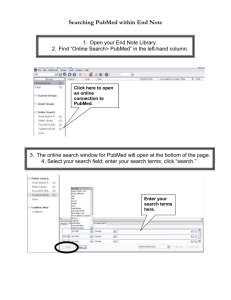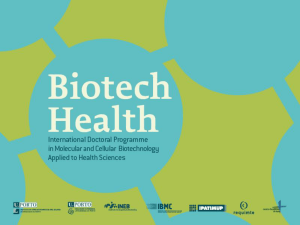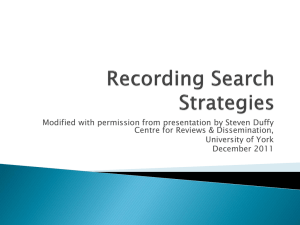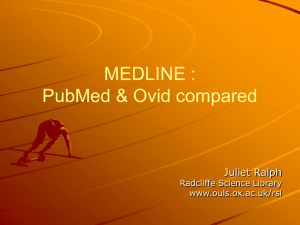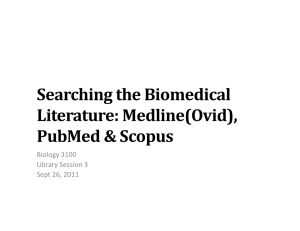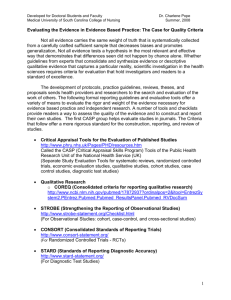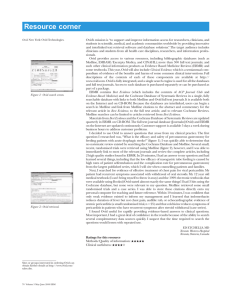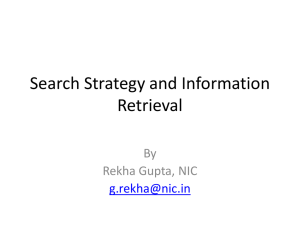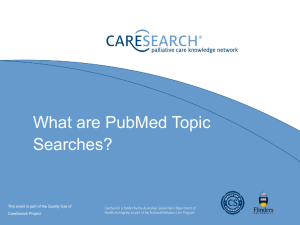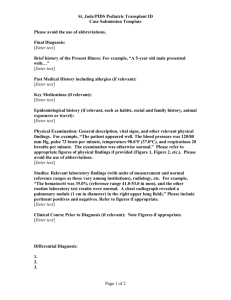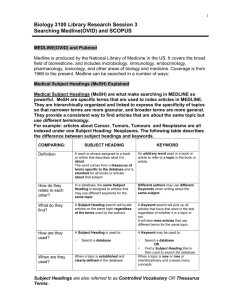Physician Scientist Pathway - Medical College of Wisconsin
advertisement
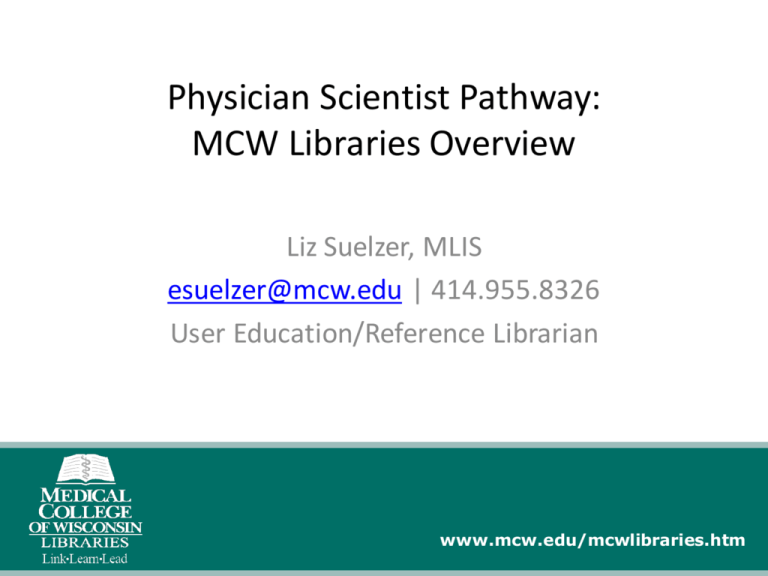
Physician Scientist Pathway: MCW Libraries Overview Liz Suelzer, MLIS esuelzer@mcw.edu | 414.955.8326 User Education/Reference Librarian www.mcw.edu/mcwlibraries.htm Objectives: • Strengthen literature searching skills • Introduce you to citation management • Raise awareness of MCW Libraries’ resources, including additional training. Outline: • MCW Libraries Website & Resources – PubMed – Scopus – Google Scholar • Group exercise • RefWorks Demonstration MCW Libraries • http://www.mcw.edu/mcwlibraries.htm How can we help you? • Database expertise – Not sure which resource to use? Ask us! • Get access to information – Can’t find it in the library? We can get it for you! • Technical support – RefWorks & Write-N-Cite – PubMed, Ovid MEDLINE, Scopus, etc. The Literature Research Process Step 1 Define your research topic or question Step 2 Describe your topic using keywords Step 3 Perform searches in article database(s): PubMed, Ovid MEDLINE, Scopus, etc. Step 4 Evaluate search results Step 5 Locate resources: Step 6 Cite articles in your papers with RefWorks Step 1 Define your research topic or question • Think about the “PICO” model – Patient/population; intervention; comparison; outcome Vaccinations and health care workers vs. Will vaccinating healthcare workers against influenza prevent patient infection? PICO Will vaccinating healthcare workers against influenza prevent patient infection? Patient/Population Healthcare workers Intervention Vaccination Comparison Outcome Patient infection Step 2 Describe your topic using keywords • Related terms – Narrower – Broader • Synonyms • Controlled vocabulary (Medline uses MeSH) Vaccinations, immunization, immunotherapy, influenza, flu, virus, H1N1, H3N2 Step 2 Describe your topic using keywords • What is MeSH? – Controlled vocabulary used by PubMed/MEDLINE – Provides a consistent way to describe topics • Brain Injury – MeSH terms are applied by subject specialists (people!) who scan each article Step 3 Perform searches in article database(s): PubMed, Ovid MEDLINE, Scopus, etc. • Advance search techniques – Boolean operators – Truncation – Phrase searching Boolean Operators • Used to define the relationship between words or groups of words AND Vaccinations AND Measles OR Cervical OR Uterine NOT Mouse NOT Rabbits () Vaccinations AND (Measles OR Rubella) Truncation • A searching technique used in databases in which a word ending is replaced by a symbol. Surg* = surgery, surgeries, surgical, surgeon, surgeons, etc. Phrase searching • Search an exact group of words in an exact order “Medical College of Wisconsin” Step 3 Perform searches in article database(s): PubMed, Ovid MEDLINE, Scopus, etc. • What is PubMed? – Free search engine – Contains abstracts of articles from journals in the fields of life science and biomedical sciences. – Many citations are indexed with MeSH terms Step 3 Perform searches in article database(s): PubMed, Ovid MEDLINE, Scopus, etc. • What is Ovid MEDLINE? – Subscription search engine – Contains just about everything that is in PubMed – Uses different search techniques and search algorithms than PubMed Step 3 Perform searches in article database(s): PubMed, Ovid MEDLINE, Scopus, etc. • Will vaccinating healthcare workers against influenza prevent patient infection? Step 3 Perform searches in article database(s): PubMed, Ovid MEDLINE, Scopus, etc. • Break apart your search into each component, search them separately, then combine using advance search techniques. – Health care workers – Influenza vaccine – Patient infection The Literature Research Process Step 1 Define your research topic or question Step 2 Describe your topic using keywords Step 3 Perform searches in article database(s): PubMed, Ovid MEDLINE, Scopus, etc. Step 4 Evaluate search results Step 5 Locate resources: Step 6 Cite articles in your papers with RefWorks Create a search in Scopus on the topic “Will vaccinating healthcare workers against influenza prevent patient infection?” • Health care workers • Influenza vaccine • Patient infection 1. Create a search in Google Scholar on the same topic. Play around with different keywords to see how your results change. 2. In Scholar, turn on MCW Libraries links and links to Import to RefWorks. View the Google Scholar video to learn how. 1. 2. Using someone’s research topic at your table, identify at least one MeSH term that is related to the topic. Run a search in PubMed and send at least one citation to RefWorks. View the RefWorks: Importing from PubMed video to learn how. Questions? Ask a librarian! asklib@mcw.edu 414.955.8302 Google MCW Libraries Ask
